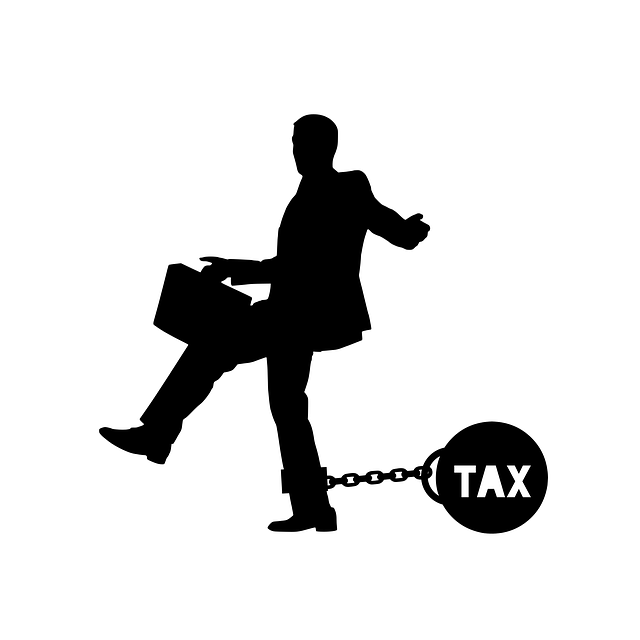Effective wealth preservation hinges on adept capital gains management, a strategy that becomes ever more critical in light of complex tax landscapes. Entrepreneurs and investors alike stand to benefit significantly from understanding how to leverage capital gains to maximize tax benefits and deductions, a practice that is key to minimizing tax liabilities. As we delve into the nuances of year-end tax planning, the importance of integrating tax-deferred investments and employing advanced minimization techniques for retirement tax planning becomes apparent. This article explores these concepts and more, guiding readers through strategic capital gains management to ensure their wealth not only endures but thrives across generations.
- Strategic Capital Gains Management: Enhancing Wealth Preservation for Entrepreneurs and Investors
- Year-End Tax Planning: Leveraging Capital Gains to Maximize Tax Benefits and Deductions
- Retirement and Beyond: Integrating Tax-Deferred Investments and Minimization Techniques in Long-Term Wealth Strategies
Strategic Capital Gains Management: Enhancing Wealth Preservation for Entrepreneurs and Investors

Entrepreneurs and investors alike stand to benefit significantly from strategic capital gains management, a pivotal aspect of wealth preservation. By mastering tax benefits for entrepreneurs, individuals can leverage these advantages to enhance their financial standing. For instance, year-end tax planning is an essential practice that allows entrepreneurs to identify and implement moves to maximize tax deductions before the fiscal year closes. This foresight can lead to substantial savings and provide a buffer against market volatility or economic downturns.
Moreover, the pursuit of tax-deferred investments represents a shrewd strategy for wealth preservation. By deferring capital gains taxes, entrepreneurs can keep more capital working for them today, thereby compounding their wealth over time. In conjunction with robust retirement tax planning, these tax minimization techniques ensure that a larger portion of the entrepreneur’s or investor’s earnings is retained and allocated towards wealth accumulation rather than taxation. The strategic use of trusts, charitable contributions, and other tax-advantaged vehicles can further optimize one’s portfolio, ensuring that wealth not only survives but thrives across generations.
Year-End Tax Planning: Leveraging Capital Gains to Maximize Tax Benefits and Deductions

As the year draws to a close, savvy investors and entrepreneurs turn their attention to year-end tax planning to maximize tax benefits and deductions. A strategic approach to capital gains management is a cornerstone of this process, allowing for the optimization of investment portfolios in a manner that not only aligns with wealth preservation goals but also leverages the favorable long-term capital gains tax rates. By carefully selecting which assets to realize gains on and which to hold over into the new year, investors can significantly reduce their tax liabilities. This selective realization strategy is particularly advantageous for entrepreneurs who may have experienced fluctuations in their business’s performance throughout the year.
Entrepreneurs stand to benefit from proactive year-end tax planning by considering retirement tax planning options that offer tax-deferred investments. These vehicles, such as Roth IRAs or 401(k) plans, can provide substantial tax minimization techniques, ensuring that a larger portion of hard-earned income remains within the business or contributes to personal savings without immediate tax consequences. Furthermore, by aligning capital gains transactions with charitable contributions or other deductible expenses, investors can further enhance their after-tax returns, effectively integrating tax benefits for entrepreneurs into a comprehensive year-end tax planning strategy. This not only prepares them for the upcoming tax season but also sets a foundation for continued wealth accumulation and preservation across generations.
Retirement and Beyond: Integrating Tax-Deferred Investments and Minimization Techniques in Long-Term Wealth Strategies

For those approaching retirement or already in its midst, integrating tax-deferred investments and employing minimization techniques are pivotal to long-term wealth strategies. Tax-deferred investments, such as Roth IRAs, 401(k)s, and other pension plans, provide a shield against the immediate tax implications of investment gains, allowing capital to compound with greater efficiency. By deferring taxes to a later date, retirees can maintain a higher net worth throughout their golden years. This approach is particularly beneficial given the potential for lower marginal tax rates in retirement, making it an opportune time to realize previously deferred gains.
Moreover, savvy investors and entrepreneurs alike stand to reap substantial tax benefits by engaging in year-end tax planning and maximizing tax deductions. Strategic financial decisions made at the end of each fiscal year can significantly influence one’s tax liability. Entrepreneurs, for instance, may accelerate deductible expenses or delay income recognition to optimize their tax position. Retirement tax planning extends beyond traditional investment vehicles; it encompasses a comprehensive analysis of all income streams and potential deductions. By adopting a proactive stance on tax minimization techniques, investors can ensure that they are not unwittingly eroding the value of their savings through unnecessary taxes. These strategies, when effectively combined with careful estate planning, can safeguard family wealth for generations to come.
Effective capital gains management stands as a cornerstone of robust wealth preservation strategies. By leveraging tax benefits for entrepreneurs and employing year-end tax planning to maximize tax benefits and deductions, investors can navigate the complexities of asset sales with greater financial agility. The integration of tax-deferred investments and strategic minimization techniques within long-term retirement plans further fortifies one’s fiscal standing, ensuring a more secure and tax-efficient future. As such, proactive engagement with these strategies is not merely advisable but indispensable for those seeking to safeguard their legacy across generations.



